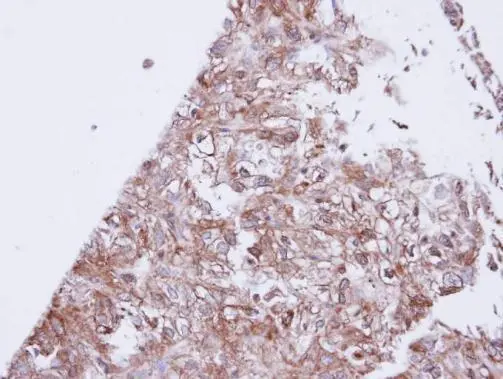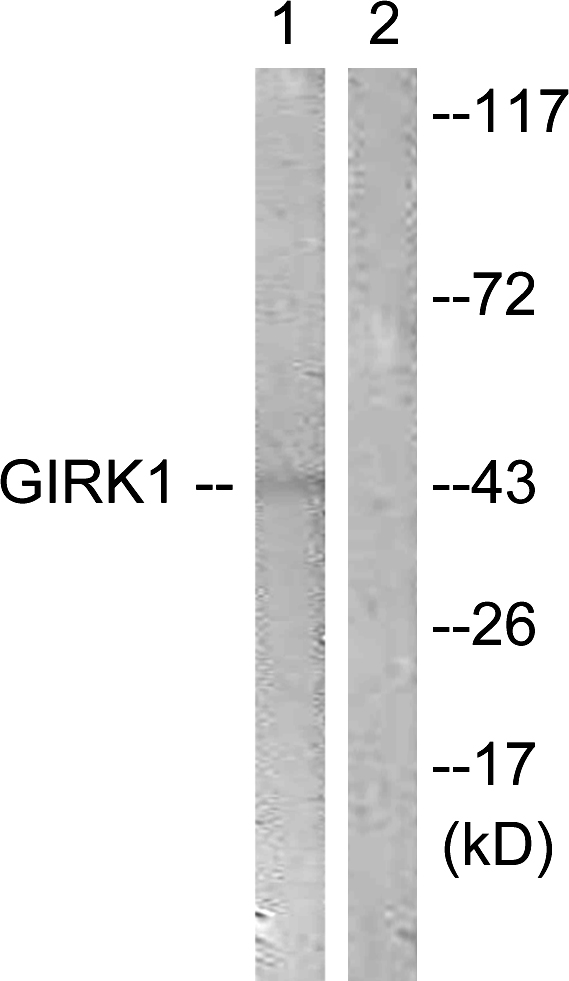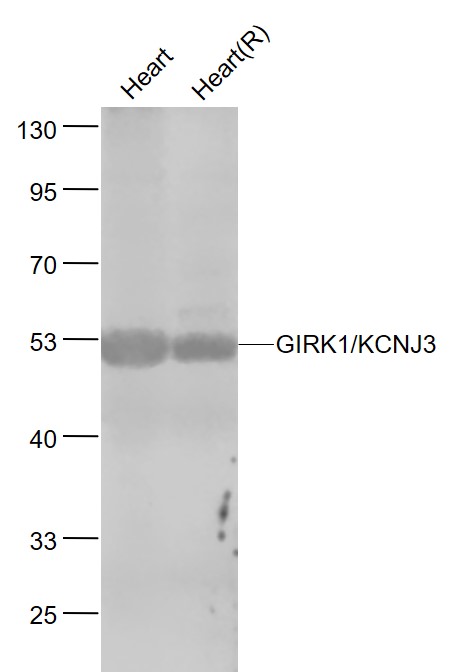
Immunohistochemical analysis of paraffin-embedded DU145 xenograft, using GIRK1(GTX108745) antibody at 1:100 dilution.
Antigen Retrieval: Trilogy? (EDTA based, pH 8.0) buffer, 15min
GIRK1 antibody [N3C3]
GTX108745
ApplicationsWestern Blot, ImmunoHistoChemistry, ImmunoHistoChemistry Paraffin
Product group Antibodies
ReactivityHuman, Mouse
TargetKCNJ3
Overview
- SupplierGeneTex
- Product NameGIRK1 antibody [N3C3]
- Delivery Days Customer9
- Application Supplier NoteWB: 1:500-1:3000. IHC-P: 1:100-1:1000. *Optimal dilutions/concentrations should be determined by the researcher.Not tested in other applications.
- ApplicationsWestern Blot, ImmunoHistoChemistry, ImmunoHistoChemistry Paraffin
- CertificationResearch Use Only
- ClonalityPolyclonal
- Concentration1.31 mg/ml
- ConjugateUnconjugated
- Gene ID3760
- Target nameKCNJ3
- Target descriptionpotassium inwardly rectifying channel subfamily J member 3
- Target synonymsGIRK1, KGA, KIR3.1, G protein-activated inward rectifier potassium channel 1, GIRK-1, inward rectifier K(+) channel Kir3.1, inward rectifier K+ channel KIR3.1, potassium channel, inwardly rectifying subfamily J member 3, potassium voltage-gated channel subfamily J member 3
- HostRabbit
- IsotypeIgG
- Protein IDP48549
- Protein NameG protein-activated inward rectifier potassium channel 1
- Scientific DescriptionPotassium channels are present in most mammalian cells, where they participate in a wide range of physiologic responses. The protein encoded by this gene is an integral membrane protein and inward-rectifier type potassium channel. The encoded protein, which has a greater tendency to allow potassium to flow into a cell rather than out of a cell, is controlled by G-proteins and plays an important role in regulating heartbeat. It associates with three other G-protein-activated potassium channels to form a heteromultimeric pore-forming complex. [provided by RefSeq]
- ReactivityHuman, Mouse
- Storage Instruction-20°C or -80°C,2°C to 8°C
- UNSPSC41116161

![Various whole cell extracts (30 μg) were separated by 10% SDS-PAGE, and the membrane was blotted with GIRK1 antibody [N3C3] (GTX108745) diluted at 1:1000. The HRP-conjugated anti-rabbit IgG antibody (GTX213110-01) was used to detect the primary antibody. Various whole cell extracts (30 μg) were separated by 10% SDS-PAGE, and the membrane was blotted with GIRK1 antibody [N3C3] (GTX108745) diluted at 1:1000. The HRP-conjugated anti-rabbit IgG antibody (GTX213110-01) was used to detect the primary antibody.](https://www.genetex.com/upload/website/prouct_img/normal/GTX108745/GTX108745_44524_20211210_WB_w_23060120_966.webp)






